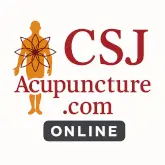This post may contain affiliate links and ads in which we may earn a small percentage of purchases.
This page may contain sponsored link in which we earn a small percentage from sales to help run the website. Thank you for your support!
Meniere’s disease (MD) is a chronic inner ear disorder that significantly impacts the quality of life for those affected. Characterized by vertigo, tinnitus, hearing loss, and a feeling of fullness in the ear, MD can be debilitating, often leading to challenges in daily activities and mental health.
Quick Links
In December 2024, a systematic review and meta-analysis published in Frontiers in Medicine examined the efficacy and safety of acupuncture for Meniere’s disease as an integrative treatment. Here are the study’s findings, the background of the condition and acupuncture, and what this means for patients seeking treatments.
What is Meniere’s Disease?
Meniere’s disease arises from an abnormal accumulation of endolymph within the inner ear, although its exact cause remains unknown. This condition affects approximately 17 to 513 individuals per 100,000 people, with many experiencing comorbid depression and significant constraints on their lifestyles. Current treatments, ranging from dietary changes to medications like betahistine and diuretics, are not universally effective and may carry side effects.1 In some cases, surgical interventions like endolymphatic sac decompression are considered.
A clear and beginner-friendly guide covering over 400 acupuncture points, ideal for students and learners.
 View Book
View Book
A stainless-steel acupuncture pen and gua sha set.
 View Product
View Product

Ménière’s disease usually affects only one ear, but in 15% to 25% of people with the disorder, both ears may be affected.2
As a result, there is growing interest in complementary and alternative therapies such as acupuncture.
What Is Acupuncture?
Acupuncture, a key component of Traditional Chinese Medicine (TCM), involves the insertion of fine needles into specific points on the body to restore balance and promote healing. It has been used to treat a variety of conditions, including those involving chronic pain, neurological issues, and inner ear disorders. For Meniere’s disease, acupuncture is thought to improve symptoms by enhancing blood falow, promoting vestibular function, and regulating inner ear fluid dynamics.
The Purpose of the Review
The systematic review aimed to evaluate the efficacy and safety of acupuncture in treating Meniere’s disease. Researchers analyzed six randomized controlled trials (RCTs) involving 494 participants. The treatment groups received acupuncture alone or in combination with bio-medicine, while control groups received only bio medical treatments. Key outcomes included the efficacy rate, dizziness handicap inventory (DHI), tinnitus handicap inventory (THI), stuffy ear visual analog scale (VAS), and pure tone audiometry scores.
Key Findings
- Improved Efficacy Rate: The meta-analysis showed that acupuncture significantly outperformed standard prescribed treatment alone.
- Reduction in Symptom Scores:
- Dizziness: The treatment group showed a greater reduction in DHI scores (MD: 6.94; 95% CI: 1.58–12.30; p = 0.01).
- Tinnitus: THI scores also improved significantly (MD: 6.52; 95% CI: 0.77–12.27; p = 0.03).
- Aural Fullness: VAS scores decreased more in the acupuncture group (MD: 0.87; 95% CI: 0.54–1.20; p < 0.0001).
- Hearing Loss: Pure tone audiometry scores favored acupuncture (MD: 6.57; 95% CI: 5.62–7.51; p < 0.0001).
- Safety: Only one study reported adverse events, finding no significant side effects in either group.
Limitations of the Study
Despite its promising results, the study had several limitations:
- Sample Size: The six RCTs included a small number of participants, ranging from 30 to 58 per trial, which may affect the reliability of the findings.
- Methodological Concerns: Issues such as lack of blinding, inconsistent randomization methods, and high risk of bias in some studies were noted.
- Homogeneity: All studies were conducted in China, limiting the generalizability of the findings to diverse populations and healthcare systems.
- Variability in Protocols: Differences in acupuncture points, techniques, and treatment durations contributed to heterogeneity among the studies.
- Follow-Up: Long-term effects remain unclear due to limited follow-up data.
Suggestions from Researchers
The authors recommend further research to validate acupuncture as a treatment for Meniere’s disease. Key suggestions include:
- Conducting larger, multi-center RCTs with rigorous designs.
- Standardizing acupuncture protocols to reduce variability.
- Evaluating long-term outcomes and recurrence rates.
- Exploring the minimum effective treatment duration for symptom relief.
What This Means for Patients
While the study highlights acupuncture’s potential as a complementary treatment for Meniere’s disease, patients should approach it as part of a holistic and integrative care plan rather than a standalone treatment. Consulting with healthcare providers and licensed acupuncturists is crucial to determine the best course of action tailored to individual needs.
Acupuncture for Meniere’s Disease – An Ally In Treatment Plan
Acupuncture shows promise in alleviating the debilitating symptoms of Meniere’s disease, offering hope for patients who have not found relief through conventional treatments. However, due to the limitations of current research, more robust studies are needed to establish its efficacy and safety conclusively. For now, acupuncture remains a valuable addition to the toolkit of therapies for managing this challenging condition.
Original Study Can Be Found Here: Efficacy and safety of acupuncture in the treatment of Meniere’s disease: a systematic review and meta-analysis
This information is for educational purposes only. Please consult with a healthcare provider for any diagnosis or treatment.
- Tang M, Li Y, Lu M, Zhang T, Ge Y, Han J, Tang J, Chen Z. Efficacy and safety of acupuncture in the treatment of Meniere’s disease: a systematic review and meta-analysis. Front Med (Lausanne). 2024;11. doi:10.3389/fmed.2024.1463821. ↩︎
- National Institute on Deafness and Other Communication Diseases. 2024. Ménière’s Disease. Retrieve January 3rd, 2025 from https://www.nidcd.nih.gov/health/menieres-disease ↩︎
Medical Disclaimer: This article is for informational and educational purposes only and is not a substitute for professional medical advice, diagnosis, or treatment. Always consult a qualified healthcare provider with any questions about a medical condition or treatment.




